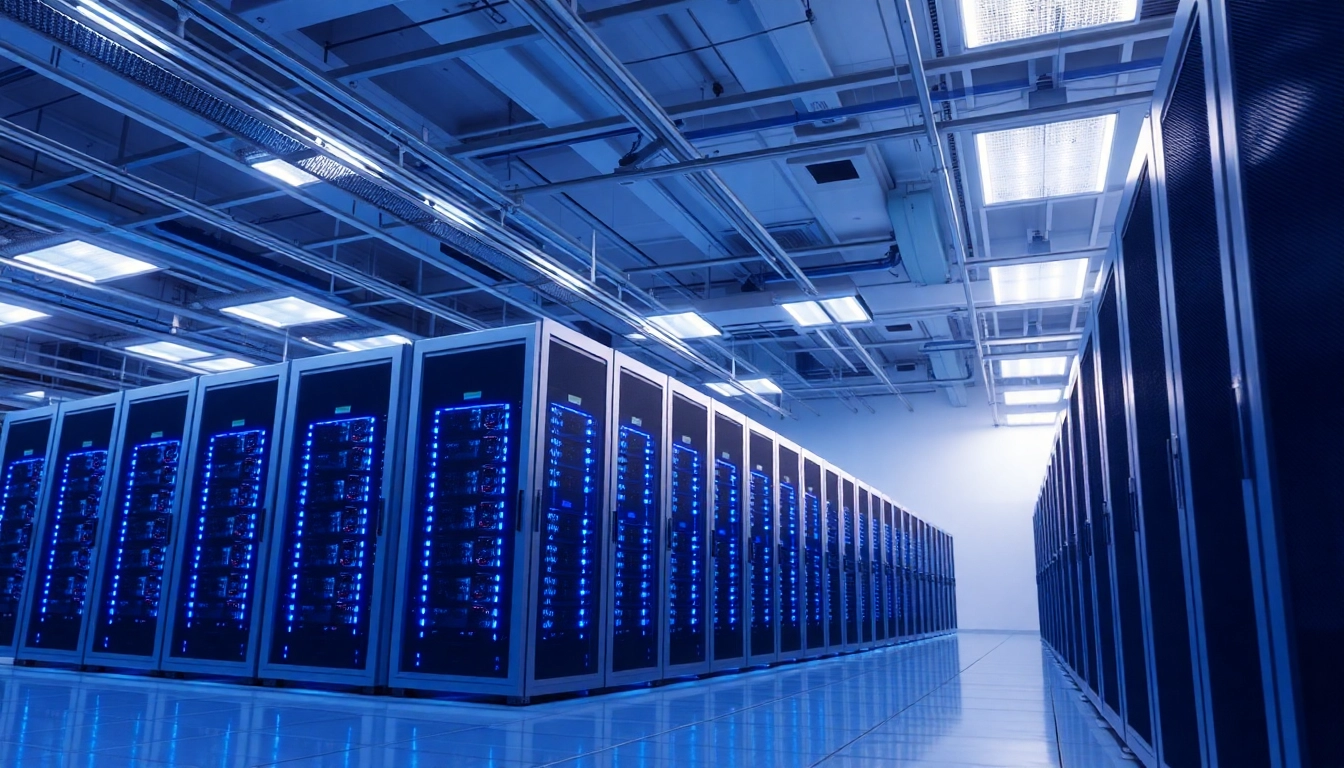Introduction to Technology
In today’s fast-paced world, the concept of technology permeates every aspect of our lives. As the driving force behind many of the conveniences we enjoy, technology is fundamentally about applying knowledge—scientific and practical—to solve problems and improve our quality of life. But what exactly is technology, how has it evolved over time, and why is it so crucial in our day-to-day existence? This article aims to delve into these questions, exploring the various types of technology, its impact on society, the associated challenges, and what lies ahead in this ever-evolving landscape.
What Is Technology?
At its core, technology refers to the application of scientific knowledge for practical purposes. It embodies tools, systems, and methods based on scientific and engineering principles to fulfill human needs and desires. From the invention of the wheel to the complexities of artificial intelligence, technology has undergone remarkable transformations, shaping civilizations and influencing natural processes. Although technology can take countless forms—including hardware, software, and methodologies—the fundamental definition remains anchored in its quest for practical application.
History of Technological Advances
The history of technology is vast and varied, stretching back to the dawn of humanity. Early technological innovations—such as the wheel, fire, and simple tools—laid the foundation for future advancements. The Agricultural Revolution marked a significant turning point, as societies shifted from nomadic lifestyles to settled agricultural practices, leading to improved food security and population growth.
The Industrial Revolution, beginning in the late 18th century, dramatically transformed societies worldwide. Mechanization of agricultural processes, steam engines, and textile manufacturing altered the socio-economic fabric and ignited urbanization. The 19th and 20th centuries saw the advent of electricity, telecommunication, and computing technologies, all groundbreaking in their own right. Today, we find ourselves in the Information Age, characterized by digital technologies, artificial intelligence, and data-driven decision-making.
Importance of Technology in Modern Life
In the contemporary world, technology occupies a central role in shaping economies, cultures, and daily activities. Essential sectors like healthcare rely heavily on technological advancements to enhance patient care and improve diagnostics. Educational institutions use innovative tools to facilitate learning and foster creativity among students. Furthermore, businesses leverage technology for operations, marketing, and customer relations, creating efficiencies and enhancing consumer experiences.
Moreover, technology promotes globalization, connecting people from different cultures and facilitating the exchange of ideas and resources. This interconnectivity supports innovation, allowing for collaborative problem-solving and shared learning experiences on a global scale. Thus, technology not only enriches individual lives but also fosters collective progress.
The Different Types of Technology
Information Technology and Its Applications
Information technology (IT) refers to the use of computers, software, and networks to store, process, and transmit information. It encompasses everything from business applications, data management systems, and cybersecurity measures to social media platforms and gaming software. IT has revolutionized how we access and share information, making it integral to both personal and professional domains.
In the business realm, IT facilitates efficient communication, collaboration, and decision-making. For instance, cloud computing allows companies to store and access data remotely, offering scalability and flexibility. Additionally, data analytics provides businesses with insights into consumer behavior, enabling better-targeted marketing strategies and enhanced customer engagement. The ongoing digital transformation further emphasizes the significance of IT in maintaining competitive advantage.
Consumer Electronics
Consumer electronics encompass a wide array of electronic devices designed for everyday use by consumers. This includes smartphones, tablets, smart TVs, and wearable devices like fitness trackers. These technologies have profoundly changed how we communicate, consume media, and even manage our health.
Smartphones, for example, have revolutionized communication, integrating countless functionalities into a single device. They enable instant access to information, facilitate social interactions via apps, and provide platform opportunities for businesses. Furthermore, the rise of smart home technologies—such as IoT devices, smart appliances, and home automation systems—has brought unprecedented convenience and efficiency to our lives, allowing users to control various home functions remotely.
Emerging Technologies in Various Fields
Emerging technologies are constantly reshaping industries and creating new possibilities. Fields like robotics, biotechnology, renewable energy, and artificial intelligence (AI) stand at the forefront of innovation, driving transformative change across sectors.
In healthcare, innovations such as telemedicine, genetic engineering, and robotic surgery are enhancing patient care and outcomes. The renewable energy sector is witnessing breakthroughs in solar, wind, and battery technologies, contributing to a more sustainable future. As AI continues to advance, its applications proliferate—from automated customer service solutions to sophisticated data analysis tools—elevating efficiency and enhancing decision-making processes.
The Impact of Technology on Society
How Technology Influences Daily Life
Technology has become an intrinsic part of daily life, influencing how we interact, work, learn, and entertain ourselves. The convenience of online shopping, the immediacy of social media, and the accessibility of information through search engines have altered consumer habits and expectations. Additionally, mobile applications facilitate day-to-day tasks, whether managing finances, booking travel, or ordering food.
However, this influence comes with challenges, such as information overload and the potential erosion of face-to-face social skills. As such, navigating the complexities of technology and its effects on relationships becomes paramount for maintaining a balanced lifestyle.
The Relationship Between Technology and Communication
Communication technologies have drastically transformed how information is shared and exchanged. From the advent of the telegraph to contemporary platforms like WhatsApp and Zoom, the mode of communication has evolved to become instantaneous and global. Social media platforms enable users to share experiences, engage with diverse communities, and highlight social issues, fostering greater awareness and activism.
Despite these advancements, challenges persist, including miscommunication and the spread of misinformation. The onus is on individuals to critically assess information and ensure credible sources are referenced, safeguarding public discourse in an age characterized by rapid information dissemination.
Sustainability and Technology
The intersection of technology and sustainability is pivotal in addressing pressing global challenges like climate change and resource depletion. Innovative technologies are increasingly deployed to foster sustainable practices across various sectors. For instance, agricultural technology enhances food production efficiency while minimizing ecological impacts through precision farming techniques.
Similarly, green technologies focus on reducing carbon footprints, harnessing renewable energy sources, and improving energy efficiency in buildings and transportation. The integration of sustainability into technological development not only enhances resource conservation but also ensures long-term socio-economic viability.
Challenges and Concerns with Technology
Privacy Issues in the Digital Age
As technology permeates daily interactions, privacy concerns have become increasingly acute. The collection of personal data by corporations and governments raises ethical questions about consent, data ownership, and individual privacy rights. High-profile data breaches have underscored vulnerabilities in information security, prompting calls for stricter regulations and user protections.
To navigate these challenges, individuals must stay informed about their rights while adopting prudent practices, such as using encryption tools and monitoring privacy settings. Additionally, lawmakers and organizations should prioritize transparent data-handling practices to foster a culture of trust and responsibility.
The Digital Divide and Access to Technology
The digital divide refers to the gap between those who have easy access to technology and those who do not. This divide manifests along socio-economic, geographical, and educational lines, impacting opportunities and resources available to disadvantaged populations. As technology underpins modern economies, inadequate access can perpetuate cycles of poverty and inequality.
Addressing the digital divide requires collaborative efforts from governments, educational institutions, and private organizations to facilitate access to technology. Initiatives like community technology centers, affordable broadband services, and digital literacy programs are crucial to bridging this gap and ensuring equitable opportunities for all.
Potential Risks of Advancing Technology
While technological advancements offer tremendous benefits, they also pose risks that merit consideration. The proliferation of automation threatens job security in specific sectors, leading to workforce displacement and economic challenges. Similarly, advancements in AI and machine learning raise ethical concerns about decision-making processes and accountability.
To mitigate these risks, it is essential for governments, businesses, and civil society to engage in dialogues about the implications of emerging technologies, establishing frameworks for responsible innovation. Continuous education and reskilling for workers displaced by automation will be vital in fostering a resilient workforce prepared for future demands.
The Future of Technology
Trends to Watch in the Next Decade
The landscape of technology is ever-evolving, with several trends poised to shape the future. The rise of artificial intelligence will continue to transform various sectors, streamlining processes and enhancing decision-making capabilities. Additionally, the expansion of the Internet of Things (IoT) will connect an increasing number of devices, creating smarter systems that enhance convenience and efficiency.
Moreover, advancements in quantum computing promise to revolutionize data processing capabilities, offering solutions to complex problems unattainable by traditional computing. As these trends unfold, remaining adaptable will be key for individuals and organizations alike.
Artificial Intelligence and Its Role
AI is not merely a technological advancement; it fundamentally redefines how we interact with machines and systems. Algorithms increasingly analyze data to derive insights, optimize performances, and inform choices across sectors from healthcare to finance. AI’s potential benefits extend beyond mere automation; by augmenting human capabilities, AI can lead to novel solutions for long-standing challenges.
However, the responsible deployment of AI necessitates addressing ethical considerations, data integrity, and algorithmic bias. Companies utilizing AI must prioritize transparency and accountability to build trust among users and stakeholders.
How to Adapt to Constantly Evolving Technology
In an age marked by constant technological evolution, adaptability is essential. Embracing lifelong learning is crucial for individuals, as the skills needed in the workforce are continually changing. Organizations should foster a culture of innovation that encourages experimentation and collaboration.
Moreover, staying informed about emerging technologies and industry trends enables businesses to remain competitive and exploit new opportunities. As we look to the future, agility, and an openness to change will be fundamental in navigating the complexities of an increasingly technology-driven world.



